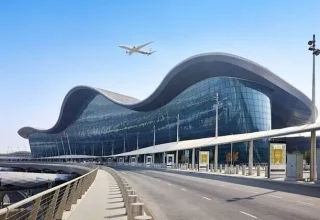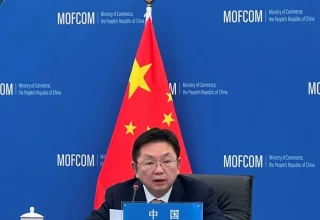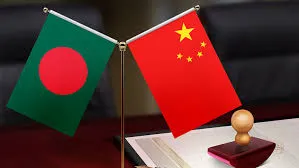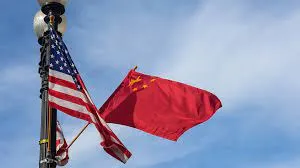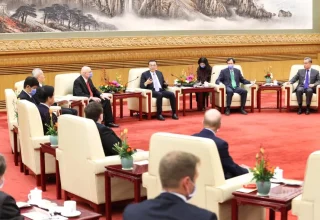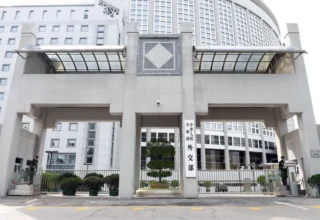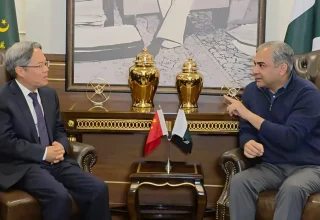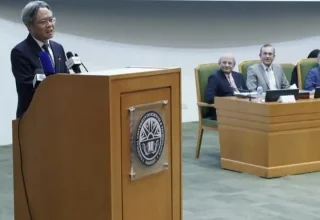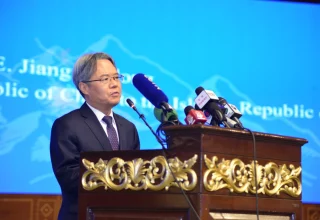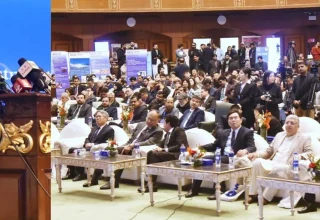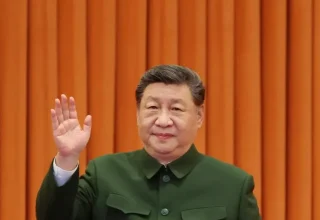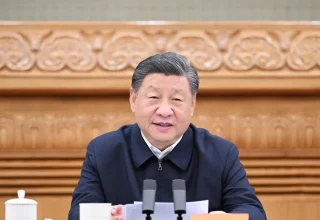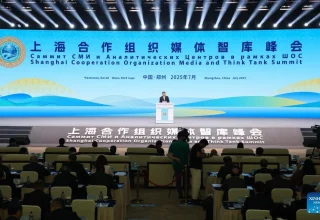
Amidst geopolitical tensions which tend to drive news around the world, the Shanghai Cooperation Organization (SCO) Media and Think Tank Summit in Zhengzhou, China, proved to be stunning evidence to the effectiveness of dialogue, cooperation and a common vision. To conclude, this summit contributed an important change towards the promotion of cooperation, trust and development among SCO member states and partners through the release of the Zhengzhou Consensus. The city of Zhengzhou in the province of Henan became an intellectual village of interactive and visionary media diplomacy.
Held under the guidance of the State Council Information Office and co-organized by the Xinhua News Agency, the Chinese Academy of Social Sciences and the Henan Provincial People Government, the summit attracted more than 400 participants, 200 media outlets, think tanks, government agencies and foreign organizations. Such a monumental convergence highlighted the increased relevance of SCO as a platform of regional peace, economic integration and cultural awareness. Such a summit was organized with the theme of carrying forward the Shanghai spirit and a joint creation of beautiful motherland.
The discussions were highly echoed by Shanghai Spirit, a guiding principle of mutual trust, mutual benefit, equality, consultation, respect of cultural diversity and seeking of common development. It provided a common platform where countries of diverse political thoughts could create a more harmonious and more successful regional and global order in a joint effort. The Zhengzhou Consensus delivered a strong and coherent statement that media and think tanks are among the guiding forces in this endeavor. They were not only recognized in forming the opinion, advancing intercultural communication and enhancing interstate collaboration yet they were praised. As Fu Hua, President of Xinhua News Agency observes the ability to develop further media cooperation between countries within SCO can be used as a way towards more unity and cooperation. In the contemporary interlinked world, media and think tanks are not only sources of information but they are majorly also framing creators of a perception and collaborators.
One message that came out of the summit about these institutions is that in order to make the Shanghai cooperation successful, these institutions have to tell the story of Shanghai cooperation well, that is, bring to fore the success stories of SCO and carry across the aspiration of the shared dream of humans with a vast cultural diversity. It is necessary in terms of strategy to create such media alignment. SCO media outlets can facilitate the trust required to achieve the long-term integration of the region by encouraging mutual admiration of national paths in terms of development and contributing to the reduction of the differences through dialogue.
They promote the idea to break the stereotypes, expand horizons and encourage people to collaborate through the presentation of the certain strengths and experiences of each of these countries. Further, think tanks and their research capabilities, as well as ability to influence the policy, are uniquely suited to contribute towards the development of forward-thinking strategies. The summit encouraged these institutions to intensify their relations with academic exchanges and cross-border researches such that the development initiatives are anchored in statistics, compassion and mutual interests. Among the most interesting features of the Zhengzhou Consensus, enhancement of the level of political trust and strategic convergence between the members of the SCO was noted. There was a shared interest in ensuring regional security and stability at a time when geopolitical uncertainty is on the rise. The consensus states clearly that it is in favor of the Global Security Initiative which stresses on cooperation rather than confrontation and multilateralism as opposed to unilateralism. It projects about a balanced, effective and sustainable system of security which means a desire to settle their disputes by means of diplomacy and mutually supported action. In this same context, the think tanks as well as media are paramount. These institutions can balance the misinformation by amplifying the SCOs peace inclined narratives and limit the level of suspicion and advance confidence building practices. They can take a positive turn in enhancing the resilience of the region against the traditional and new emergent phenomena like cybercrime, terrorism and pandemic.
All SCO countries have economic development and modernization as their major priorities. The Zhengzhou Consensus is consistent with the Global Development Initiative, which promotes the narratives of economic integration in the region to be told by SCO media and think tanks in a vivid manner. The process is already underway in real-time: projects in the digital economy, mega-infrastructure projects to SCO region as a zone of innovation and development are all becoming reality at an accelerated pace. The Summit demanded greater alignment of development strategy and more cooperation in science, technology and education. With the solid communication and analysis of such initiatives it leaves others emboldened to collaborate further and might attract investment. With the emphasis on mutual progress, the SCO media and think tanks can build an attitude of optimism and opportunity, resulting in the atmosphere of the countries collaborating not only to benefit themselves, but also to improve the common cause.
In addition to economics and security, the Zhengzhou Consensus was heavily focused on cultural comprehension and civilizational communication. Based on the Global Civilization Initiative, the summit promoted a respectful relationship between cultures and an enrichment of the world into a more colorful place by means of cultural exchange. Culture inclusiveness is a relief to the format of culture in a world characterized by polarization and divisions in general. Media and think tanks will be in a great place to show people the common values, traditions and aspirations that SCO nations share. They can strengthen people-to-people ties, creating empathy through documentaries, opinion pieces, educational and public diplomacy materials. The Consensus resoundingly sung the tune that real multilateralism and a more just global order was needed.
By supporting this view, the SCO once again proved that it is a force of stability in the international arena. It provided a more definite option to the zero-sum geopolitics and asked states to enter into a free dialogue process, respect the international law and towards a comprehensive governance with an interested group of the developing nations in mind. The Zhengzhou Summit came to an optimistic result: the intensified cooperation between SCO media and think tanks can provide an opportunity to live in an even more united, stable and successful region. The event has already provided agreement and plans of action to collaborate in reporting, academic study and training of personnel. The alliances created and the principles promoted in Zhengzhou will serve to drive the transformation of the organization and make it a more cohesive, modern-looking society. Zhengzhou Consensus is not just a declaration in itself but it is a roadmap. The SCO initiative of not just strengthening media and think tanks but enabling them to become facilitators of dialogue, disseminators of truth and promoters of cooperation are ensuring the provision of soft power infrastructure that will be required to ensure sustained peace and development. The SCO Media and Think Tank Summit in Zhengzhou is a guard with a pleasant anticipation, in an era where global governance is still yet to be completed, the summit provides a chapter of mutual understanding, respect and shared vision of a better world.






